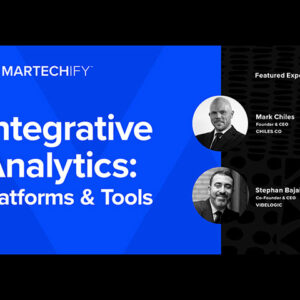The Power of Data in Content Strategy
Maximizing content impact: Harnessing the power of data in content strategy
In today’s digital landscape, data serves as the bedrock of a robust content strategy, offering invaluable insights into audience preferences, behavior patterns, and various stages of their journey. To truly uplevel their content game, organizations must recognize and leverage the pivotal role of data in shaping the relevance and delivery of their content.
Understanding audience journey
Recognizing audience diversity in buyer’s journey understanding the crucial role of data in content relevance
One fundamental aspect is understanding where diverse audiences are situated in the buyer’s journey. Content should be tailored to align seamlessly with these stages while remaining adaptable across different channels such as websites and social media platforms. Leveraging tools like customer relationship management (CRM) systems, marketing automation tools, and customer data platforms (CDPs) can significantly aid in effectively reaching target audiences.
Tailoring content for engagement
Aligning content with buyer’s journey stages adapting content for various channels: Websites, social media platforms
Moreover, mapping content against both the buyer’s journey and a compelling story arc is crucial. While many companies excel in creating content for late-stage engagement, such as persuasion and commitment, they often overlook early-stage engagement. Crafting content that resonates with audience pain points during the “Engage” stage can build trust and establish meaningful connections.
Leveraging data tools
Utilizing CRM systems for audience reach harnessing marketing automation tools for effective communication optimizing customer data platforms (CDPs) for targeted strategies
Personalization emerges as a pivotal strategy in content delivery. By analyzing data using intent platforms, companies can customize content based on individual preferences and buying stages. This personalized approach not only enhances engagement but also drives conversions and fosters customer loyalty.
Mapping content effectively
Creating a compelling story arc balancing late-stage and early-stage content creation
In essence, data-driven content strategies empower businesses to deliver timely, relevant, and personalized experiences to their audiences. By leveraging data effectively, organizations can stay ahead in a dynamic digital landscape and build lasting relationships with customers, thus ensuring long-term success and sustainability in today’s competitive market.
Sources
- How To Find External Sources To Create Trustworthy Content – Content Marketing Institute
- Why Should You Add External Links To Your Content? – CopyPress
- How to Leverage Internal and External Data for Content Marketing – Fractl
- What is the Difference Between Internal and External Content? – Disruptive Advertising
Related resources
Want more like this resource? Find helpful links below.













